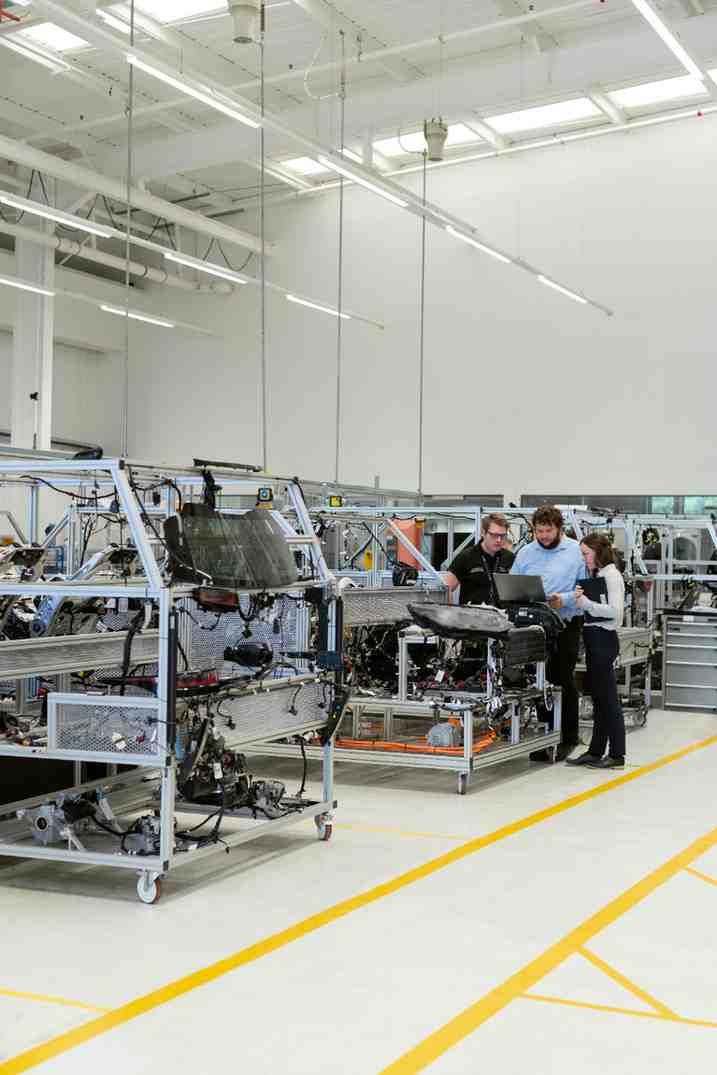
What Makes a Tailored Odoo ERP Ideal for Electronics Manufacturing?
Electronics manufacturing is a complicated industry involving highly dynamic workflows such as sourcing components, precise assembly, quality control, and regulatory compliance. Standard ERP systems frequently struggle to adjust to these complex procedures, particularly in hectic settings with multi-stage production and international supplier chains. Departments such as R&D, procurement, production, and after-sales service can better coordinate with one another by fine-tuning a custom Odoo ERP to reflect distinct operating flows.
Electronics companies may automate production lines, use serial tracking to manage inventories, and have real-time insight into performance indicators thanks to customisation. Instead of changing their processes to fit generic software, firms may make sure the system fits their style of working by investing in an odoo customization service. A customised solution maximises efficiency, scalability, and agility, whether it's optimising multi-vendor management, adding custom dashboards for product lifecycle tracking, or integrating IoT for machine data.
Key Operational Gaps Solved Through Odoo ERP Personalization
Inconsistent Component Traceability: Generic ERP systems often lack granular tracking. Odoo customization enables barcode-based or serial-number tracking for every part, ensuring traceability across batches and stages.
Manual Production Planning: Without automated planning, delays and resource conflicts arise. Custom Odoo modules allow intelligent scheduling based on machine availability, BOMs, and order priorities.
Fragmented Quality Control: Quality checks are frequently managed in silos. A customized Odoo ERP integrates QC into each production stage, providing detailed logs and real-time alerts for non-compliance.
Inefficient Vendor Management: Multiple vendors for electronic components require robust coordination. Personalizing Odoo allows automatic RFQ generation, lead time tracking, and vendor scoring.
Poor Change Management in BOMs: Electronics designs change frequently. Odoo customization supports version control, auto-updated routings, and alerts for all stakeholders when BOMs are revised.
Lack of Warranty & RMA Tracking: Electronics products often need post-sale support. Custom features help track warranties, automate RMA processes, and link defect data to production faults.
Core Functional Areas Enhanced by Custom Odoo Implementation
Procurement Automation: Automate supplier comparison, lead time evaluation, and purchase order generation based on forecasted demand or reordering rules using customized workflows.
Smart Inventory Management: Implement real-time tracking of raw materials and finished goods with RFID, batch management, and automated stock reordering via custom rules.
Production Line Optimization: Configure Odoo to monitor machine uptime, generate production KPIs, and auto-allocate work orders to avoid downtime and improve output.
Quality Assurance: Embed quality gates into every manufacturing step. Customized quality checks, defect tagging, and approval workflows ensure consistent output.
PLM (Product Lifecycle Management): Manage designs, revisions, engineering change orders (ECO), and documentation centrally through personalized PLM features in Odoo.
Cost Tracking & Margin Control: Track exact production costs through customized modules capturing labor, materials, and overheads, helping improve profitability analytics.
After-Sales and Warranty Service: Custom portals and modules can automate warranty checks, service scheduling, and feedback collection to improve customer retention.
Why Growing Electronics Firms Prefer Odoo Customization Services
Scalability for Complex Manufacturing: As electronics businesses expand, operations become more intricate. Custom Odoo solutions scale with multi-plant coordination, localization, and advanced workflows.
Agile Process Adaptation: Electronics trends evolve quickly. Odoo customization service allows rapid updates to match evolving process flows and market needs.
Real-Time Data Insights: Tailored dashboards offer real-time analytics on production, quality, and inventory, enabling informed decision-making and performance improvement.
Seamless Third-Party Integration: Integrate with CAD tools, testing equipment, or eCommerce platforms like Shopify or Amazon through API-based Odoo customization.
Compliance and Certification Tracking: Meet industry standards like RoHS or ISO by implementing customized compliance workflows with automated documentation and audit logs.
Cost Efficiency: Unlike other ERP platforms, Odoo’s open-source nature combined with customization offers high ROI without recurring licensing costs.
Competitive Advantage: A system that mirrors internal strengths and optimizes key metrics provides a decisive edge in delivering faster, more reliable products.
Evaluating the Cost and ROI of Customizing Odoo for Electronics Operations
Electronics businesses frequently balance the long-term advantages of ERP expenditures against the initial expenses of customisation. The amount of modules altered, integration requirements, user roles, and deployment type (cloud or on-premise) all affect how much it costs to customize Odoo. However, there are frequently large time and financial benefits when repetitive operations can be automated, errors can be decreased, and decision-making can be improved. Depending on complexity, implementation could take anywhere from six to twelve weeks, although the benefits become apparent in the first few production cycles.
Increased production efficiency, decreased downtime, and better customer service are all benefits of investing in an odoo customization service. Smarter resource allocation, quicker time-to-market, and improved forecasting are made possible by customised reporting and process automations. Additionally, fewer manual procedures and disjointed tools mean fewer dangers and more productive workers. Customising Odoo has a considerably higher long-term return on investment than the initial investment, particularly for electronics companies that deal with complex supply networks and constantly shifting product configurations.



















